
British Ambassador Gareth Ward: Viet Nam's commitments at COP26 are real steps and achievable goals
Latest
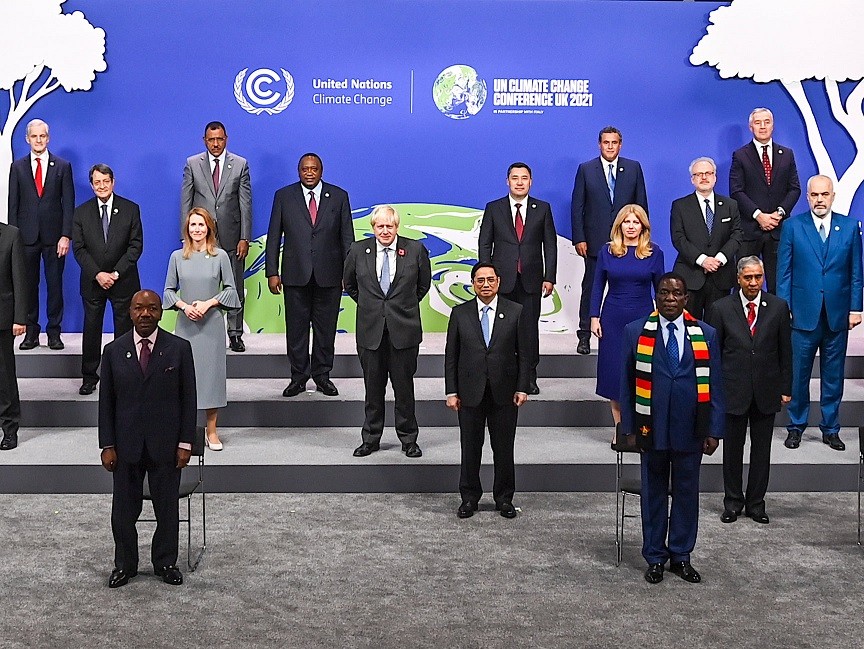 |
| PM Pham Minh Chinh and other leaders at COP26. (Photo: The UK embassy in Viet Nam) |
What is your assessment of the significance of the 26th UN climate change conference of the parties (COP26) and the UK’s role as host?
The level of attendance by world leaders and the global media coverage are a clear indication that COP26 in Glasgow is a pivotal moment in the fight to stop catastrophic climate change. As I speak, we are half way through two weeks of global negotiations to determine whether humanity can drive forward the urgent action needed. As the world experiences record temperatures and extreme weather, the need to stop global warming beyond 1.5 degrees above pre-industrial levels has never been clearer.
The UK COP26 Presidency has called on countries to speed up actions to tackle climate change. There are four main objectives for the conference. The first is to increase commitments by countries to reduce their carbon emissions securing net zero emissions by the middle of this century.
The second is to work closely together to help countries to adapt, especially those most vulnerable to the effects of climate change, like Viet Nam. The third is to raise the funds needed to tackle climate change, including increasing the amount of finance provided by developed countries for developing countries.
And finally, we can only rise to the challenges of the climate crisis by working together. At COP26, we must finalise the Paris Rulebook – the detailed rules that make the Paris Agreement operational.
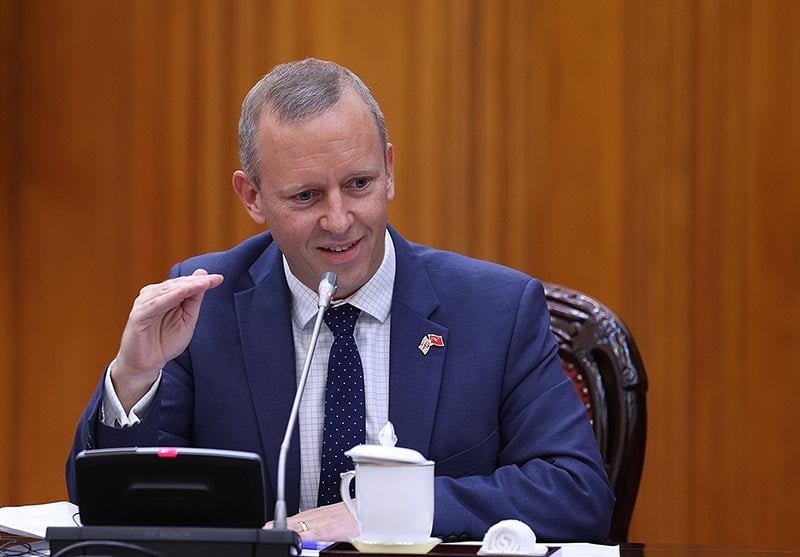 |
| British Ambassador Gareth Ward. (Photo: The UK embassy in Viet Nam) |
It was a strong signal from Prime Minister Pham Minh Chinh to lead Viet Nam’s delegation to the COP26 World Leaders Summit. I have discussed climate change regularly with Minister of Natural Resources and Environment Tran Hong Ha and Minster of Industry and Trade Nguyen Hong Dien.
In my meetings with Prime Minister Pham Minh Chinh I saw how important sustainability is to his vision for economic growth. The Prime Minister should be congratulated for his climate leadership demonstrated by the COP26 commitment for Viet Nam to reach net-zero by 2050.
I also understand Viet Nam’s vulnerability to the effects of climate change. I have seen first-hand how flooding has affected people and their homes and livelihoods in Viet Nam.
COP26 has encouraged developed countries to come forward with new finance announcements. The UK has increased its climate finance commitment to £11.6bn for the next four years. For the ASEAN, the UK has committed £110m through the ASEAN Catalytic Green Finance Facility (ACGF), in partnership with Asian Development Bank, to finance green infrastructure projects in Viet Nam and other countries in the region, on areas such as renewable energy, clean transportation or urban infrastructure.
The UK Prime Minister Boris Johnson also announced that the FCDO-backed Private Infrastructure Development Group (PIDG) will commit £210m of new investment to back transformational green projects in developing countries, including Viet Nam.
Viet Nam was not alone making climate commitments at the World Leaders Summit. India, Thailand, Nepal, and Nigeria also made new net zero pledges which now means that 90% of the global economy is covered by net zero commitments.
We have heard new Nationally Determined Contribution announcements from: Argentina, Brazil, Guyana, India, Mauritania, Morocco, Mozambique and Thailand. New Long-Term Strategies were announced or submitted by Jamaica, Kazakhstan and the USA. As we enter the 2nd week of COP26, the UK Presidency will keep working with countries and facilitate the discussion for a successful COP26, with the aim to keep alive hopes of limiting global warming to 1.5C.
What is your opinion about Viet Nam's role and efforts in climate change response as well as the UK-Viet Nam’s cooperation in climate change response at the bilateral and multilateral levels?
First, let me emphasise that no country should face this challenge alone. We have to work together and every country must take action. If we don’t, our children will not forgive us.
Viet Nam’s new target of net zero by 2050 is ambitious but achievable. The target shows a real step forward in ambition and will be a big contribution to keeping 1.5 degrees within reach.
Viet Nam also agreed at COP26 to support a number of important statements and initiatives on protecting forests, on shifting from coal to clean energy, on supporting adaptation for local communities, and on methane reduction. All of these statements further strengthen Viet Nam’s commitment to tackling climate change.
In the past few years, there has been a lot of cooperation between the UK and Viet Nam on climate change. For example, some communities in Viet Nam are very vulnerable to unpredictable weather patterns so we’re working together to build housing in central Viet Nam that can be resistant to flooding.
This is funded through the Green Climate Fund, with the UK as the biggest bilateral donor. The same fund is also supporting farmers in the Central Highlands so they can change their agriculture practices, to cope with different weather conditions for their crops.
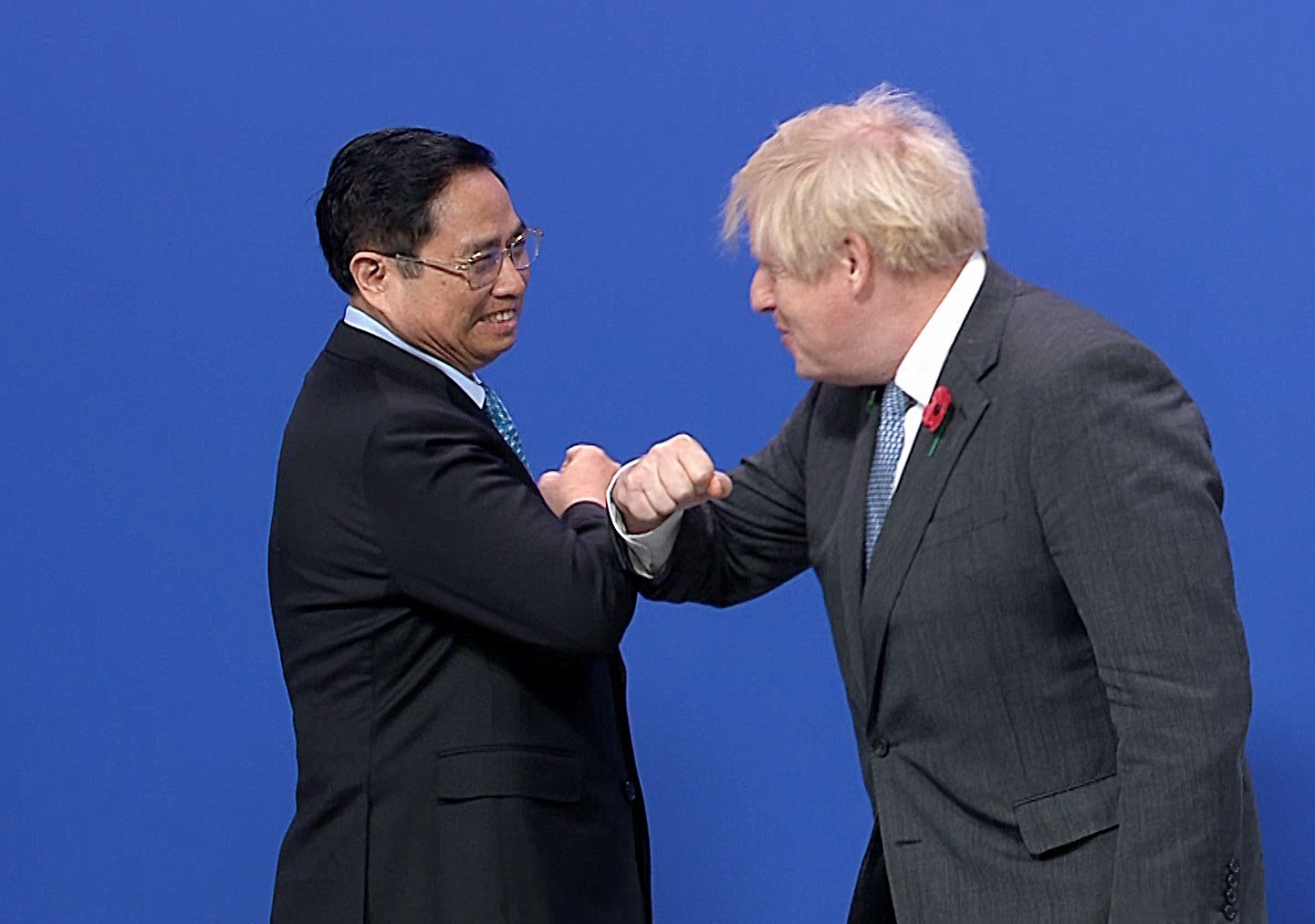 |
| British Prime Minister Boris Johnson welcomes Prime Minister Pham Minh Chinh to the Conference. (Photo: VNA) |
Equally importantly, we are working together on green growth and energy. UK development capital, in partnership with the World Bank, ADB and Infraco Asia are investing in green infrastructure projects. Viet Nam has huge potential in clean energy - solar, wind, and hydro resources. The UK is a world leader in offshore wind so we are sharing experience about how Vietnam can develop an offshore wind sector.
We are working to combine government funding, Official Development Assistance (ODA) and private sector capital to drive green growth. Ultimately, the government must improve regulation and then businesses will act, driven by their consumers. When foreign companies invest in Vietnam, they want to produce in a green way. They want clean energy, and they want to use clean technologies to provide products for the world.
Building from COP26, we look forward to continuing to work with Viet Nam and to support the implementation of Viet Nam’s new climate commitments and its energy transition, drawing on international climate finance.
How do you assess the prospects of the two countries’ bilateral cooperation in the post-Covid-19 era?
I am very optimistic about the future prospects of the UK-Viet Nam bilateral relationship. This week has seen some really positive engagement between our two governments, Prime Minister Pham Minh Chinh met Prime Minister Johnson and His Royal Highness The Prince of Wales; Foreign Minister Bui Thanh Son met with the Foreign Secretary; and the Minister of Public Security To Lam met the Home Secretary. This demonstrates the strength but also the breadth of our relationship. There were also 26 deals signed with a value of over $1.5bn, and we handed over a medical donation of £500,000.
We look forward to celebrating the 50th anniversary of bilateral relations in 2023. And last year we refreshed with Viet Nam the Strategic Partnership Agreement that sets the direction for the relationship over the next 10 years. We committed then to deepen bilateral trade and investment; cooperate to support sustainable economic growth, and to combat climate change; work together on shared security challenges; enhance education ties; and promote human rights.
So I am convinced that the relationship will continue to strengthen, even as we learn to live with Covid-19. As a result of the pandemic, our health cooperation has also really taken off as we supported Viet Nam access vaccines and medical equipment.
The UK has become a dialogue partner of ASEAN, what are potentials for cooperation between the two sides in the coming time? What do you think about the role of ASEAN in the region?
ASEAN is the pre-eminent multilateral group in South East Asia, a market of 650m people, predicted to be fourth largest ‘single market’ by 2030. A strong UK-ASEAN relationship is a critical part of our global engagement and foreign policy.
The UK is delighted to be the first new Dialogue Partner to ASEAN in 25 years. Our new Dialogue Partner status will enable us to deliver deeper UK-ASEAN cooperation and mutual benefit. The UK will work with ASEAN and its members on a range of issues such as maritime security, transnational crime, trade, investment, climate change, the environment, science and technology, and education.
Specifically on trade, ASEAN markets present an exciting and dynamic place for the UK to do business, especially in the digital, infrastructure and education sectors.
The UK and ASEAN already enjoy strong trading links. Trade between the UK and ASEAN nations was worth £33.8 billion in 2020, making ASEAN equivalent to the 4th largest non-EU trading partner for the UK.
The UK is already a top 10 investor in ASEAN, supporting jobs across the region and providing room for UK companies to increase their presence. We are determined to build on these firm foundations. Our new Dialogue Partner status will help deepen these links further.
On development assistance, the UK is a longstanding development partner in Southeast Asia. UK development cooperation with ASEAN includes supporting mutual trade and prosperity, collaboration on science and research, building climate resilience and low carbon growth, tackling Covid-19, where the UK is providing over £50m in support, and de-mining support to countries most affected by unexploded ordinance. These are on-going support for the coming time.
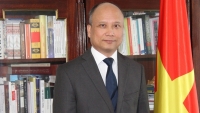
| Strengthening Viet Nam-France relations in a changing global context On the eve of the visit by Vietnamese Prime Minister Pham Minh Chinh to France, Vietnamese Ambassador to France Dinh Toan Thang has shed light ... |
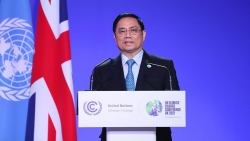
| Prime Minister Pham Minh Chinh’s working trip to UK success beyond expectations Prime Minister Pham Minh Chinh and a high-ranking delegation of Viet Nam on November 3 successfully wrapped up their working trip to attend the 26th ... |













